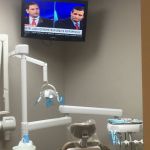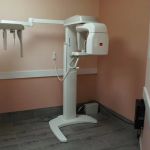How to Protect Your Teeth When Playing Sports: Essential Tips for Safety
As a sports enthusiast, you’re probably aware of the thrill and excitement that come with your favorite physical activities. Whether you're playing contact sports like football or basketball, or engaging in non-contact activities like tennis or cycling, there’s one aspect of your body that needs special attention—your teeth. The risk of dental injuries during sports is real, and if you're not careful, a simple slip or collision can lead to broken teeth, cracked enamel, or worse. In this article, we'll explore how to protect your teeth when playing sports, providing essential tips and tricks to keep your smile safe and sound.
1. Why Are Teeth at Risk in Sports?
Sports-related dental injuries are more common than most people think. Whether it's a hard collision with another player, a ball to the face, or an accidental fall, your teeth are vulnerable to impact. According to studies, approximately 1 in 10 athletes will experience a dental injury during their sporting careers. The risk is particularly high in contact sports such as football, basketball, hockey, and martial arts, but it also exists in non-contact activities like cycling and skiing.
1.1 Common Types of Dental Injuries in Sports
There are several types of dental injuries that can occur during sports, including:
- Chipped Teeth: These happen when a tooth gets hit by a ball, another player, or a piece of equipment, causing a part of the tooth to break off.
- Knocked-out Teeth: An impact can cause a tooth to be completely dislodged, which can be a painful and traumatic injury.
- Fractured Teeth: Fractures occur when a tooth cracks but doesn’t completely break off, often leaving a painful and sensitive area.
- Soft Tissue Damage: Blows to the face can also damage the gums and the inner parts of the mouth, leading to cuts and bruising.
2. How to Protect Your Teeth: The Importance of a Mouthguard
One of the most effective ways to protect your teeth when playing sports is by wearing a mouthguard. A mouthguard is a specially designed dental appliance that fits over your teeth and gums to absorb and cushion blows to the mouth and jaw. Whether you're playing in an intense match or engaging in light recreational sports, a mouthguard can significantly reduce the risk of tooth damage, jaw fractures, and soft tissue injuries.
2.1 Different Types of Mouthguards
Not all mouthguards are created equal. There are several types available, each with different levels of protection and fit:
- Stock Mouthguards: These are pre-formed and ready to wear. They are affordable but often don’t provide the best fit or comfort.
- Boil-and-Bite Mouthguards: These can be softened in hot water and then molded to the shape of your teeth for a better fit. They're more comfortable than stock mouthguards but still not as precise as custom ones.
- Custom-Made Mouthguards: These are made by a dentist based on impressions of your teeth, ensuring the best fit and maximum protection. They offer the highest level of comfort and effectiveness but come at a higher cost.
2.2 Why Custom Mouthguards Are Worth the Investment
If you're serious about protecting your teeth, a custom-made mouthguard is worth the investment. Not only do they provide a superior fit, but they also offer better protection against serious injuries like tooth loss and jaw fractures. Custom mouthguards are tailored to your unique dental structure, ensuring that they stay securely in place, even during intense physical activity.
3. Additional Tips for Protecting Your Teeth in Sports
While mouthguards are the most important piece of equipment for dental protection, there are other steps you can take to minimize the risk of dental injuries during sports:
3.1 Be Mindful of Your Equipment
Always check your sports equipment for safety. In contact sports, ensure that helmets, face shields, and padded gear are properly fitted. In sports like cycling or skateboarding, wear a helmet that also provides face protection to shield your teeth from potential impacts.
3.2 Avoid Using Your Teeth as Tools
It’s common for people to use their teeth to open bottles or packages, but this can lead to chips or cracks in your teeth. This habit is especially risky when engaging in sports where you might already be at risk for trauma to the mouth. Avoid this practice to protect your teeth from unnecessary damage.
3.3 Keep Your Teeth Healthy with Regular Dental Check-ups
Maintaining good oral health is essential in ensuring that your teeth are strong enough to withstand any impacts that may occur while playing sports. Regular visits to your dentist for check-ups, cleanings, and preventive care can help identify any potential weaknesses in your teeth or gums before they become a problem.
4. What to Do if You Suffer a Dental Injury During Sports
If you do experience a dental injury during sports, it’s important to act quickly to prevent further damage:
4.1 If a Tooth Is Knocked Out
If a tooth is knocked out, immediately rinse it with water (but don't scrub it) and try to place it back in the socket. If that’s not possible, keep the tooth moist by placing it in milk or a saline solution and visit a dentist immediately. The faster you act, the better the chance of saving the tooth.
4.2 If You Chip or Crack a Tooth
If your tooth is chipped or cracked, rinse your mouth with warm water and apply a cold compress to reduce swelling. Avoid chewing on that side of your mouth and contact your dentist for evaluation and treatment.
5. Conclusion
Protecting your teeth while playing sports is essential to avoid painful and costly dental injuries. By using a mouthguard, being mindful of your equipment, and maintaining good oral hygiene, you can enjoy sports without worrying about damaging your smile. Remember, dental injuries can happen quickly, but with the right precautions, you can minimize the risks and keep your teeth safe. To learn more about oral protection or if you need advice on custom mouthguards, visit Toothtruth Dentistry for the best options available to you!







 All Seacoast Dental and Associates3.0 (38 review)
All Seacoast Dental and Associates3.0 (38 review) Garden State Smiles of Matawan4.0 (502 review)
Garden State Smiles of Matawan4.0 (502 review) I. Stephen Brown, DDS, FACD, FICD4.0 (37 review)
I. Stephen Brown, DDS, FACD, FICD4.0 (37 review) Dentist Implants Bucks County5.0 (7 review)
Dentist Implants Bucks County5.0 (7 review) Advanced Family Dental & Orthodontics4.0 (216 review)
Advanced Family Dental & Orthodontics4.0 (216 review) Metropolitan Oral and Maxillofacial Surgery Associates4.0 (365 review)
Metropolitan Oral and Maxillofacial Surgery Associates4.0 (365 review) The Importance of Oral Health Education During Pregnancy for a Healthy Pregnancy
The Importance of Oral Health Education During Pregnancy for a Healthy Pregnancy Best Tips for Brushing Your Teeth Properly for Healthy Gums: Essential Techniques for Oral Health
Best Tips for Brushing Your Teeth Properly for Healthy Gums: Essential Techniques for Oral Health Why Skipping Dental Checkups Can Lead to Bigger Oral Health Problems
Why Skipping Dental Checkups Can Lead to Bigger Oral Health Problems Advantages of Porcelain Dental Restorations
Advantages of Porcelain Dental Restorations How Can Diabetes Cause Tooth and Gum Problems? Preventing and Managing Oral Health Issues
How Can Diabetes Cause Tooth and Gum Problems? Preventing and Managing Oral Health Issues Healthy Habits for Promoting Good Oral Health and Hygiene: Tips for a Healthy Smile
Healthy Habits for Promoting Good Oral Health and Hygiene: Tips for a Healthy Smile